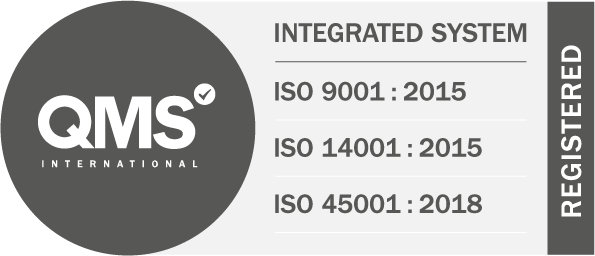Reflex reveals the growing list of electric vans that will help your business transition to zero-emission vehicles
Fleet managers are now spoilt for choice when it comes to introducing electric vans to their businesses. We list some of the key models that can drive your zero-emission transition in 2024
This year, manufacturers are required by law to ensure that 10% of new vans sold in the UK are battery electric vehicles.
In two years’ time, the government wants nearly one in four new vans sold to be an electric vehicle; over the next six years, manufacturers are predicted to sell more than 900,000 electric vans, creating a market worth £30 billion.
What this means for fleet managers is a vast increase in the choice and capability of zero-emission vans as the country travels towards the end of the diesel van era.
We look at the key electric vans currently available on the market and what they have to offer fleet operators.
If you want to know more about any of the vehicles covered or arrange a potential test drive through the Reflex Renewable Drive programme, get in touch with our team.
We understand that each customer will have unique requirements, which is why we implement a personalised approach to the adoption of electric vehicles.
Through our tailored electrification process, our team will work closely with you to understand your specific needs and preferences, so you choose the vehicle best suited to your business needs.
Electric vans to consider in 2024
Ford E-Transit
Four of the 10 best-selling vans last year had a Ford badge and the iconic Transit has dominated the sales charts for 50 years, with more than three million sold. As a result, Ford has invested heavily in protecting its reputation in the post-diesel era with its first all-electric commercial vehicle.
Ford says there is no compromise in its approach to ensure the Transit is as usable and practical as a fossil-fuelled alternative.
The E-Transit comes with a 68kWh battery and an official range of 166 – 196 miles, depending on the type of driving required. Higher speeds mean less range.
Ford offers a Range Calculator to help fleets estimate their own range depending on driving conditions: EV Range Calculator: See how far you can go | Ford UK
The E-Transit offers the same wealth of variants as you get with a diesel, including two heights, three lengths, various power options and a choice of layouts including double-cab or chassis cab.
With up to 15.1 cubic metres of cargo space, payload capacity of up to 1.7 tonnes, capability to fast charge from 15% to 80% in 30 minutes, and a three-pin socket for plugging in electrical items to run off the vehicle battery, there is a lot to like.
Maximum towing capacity is 750kg. For heavier loads, the new Transit Custom Plug-In Hybrid has a targeted maximum towing capacity of 2,300kg.
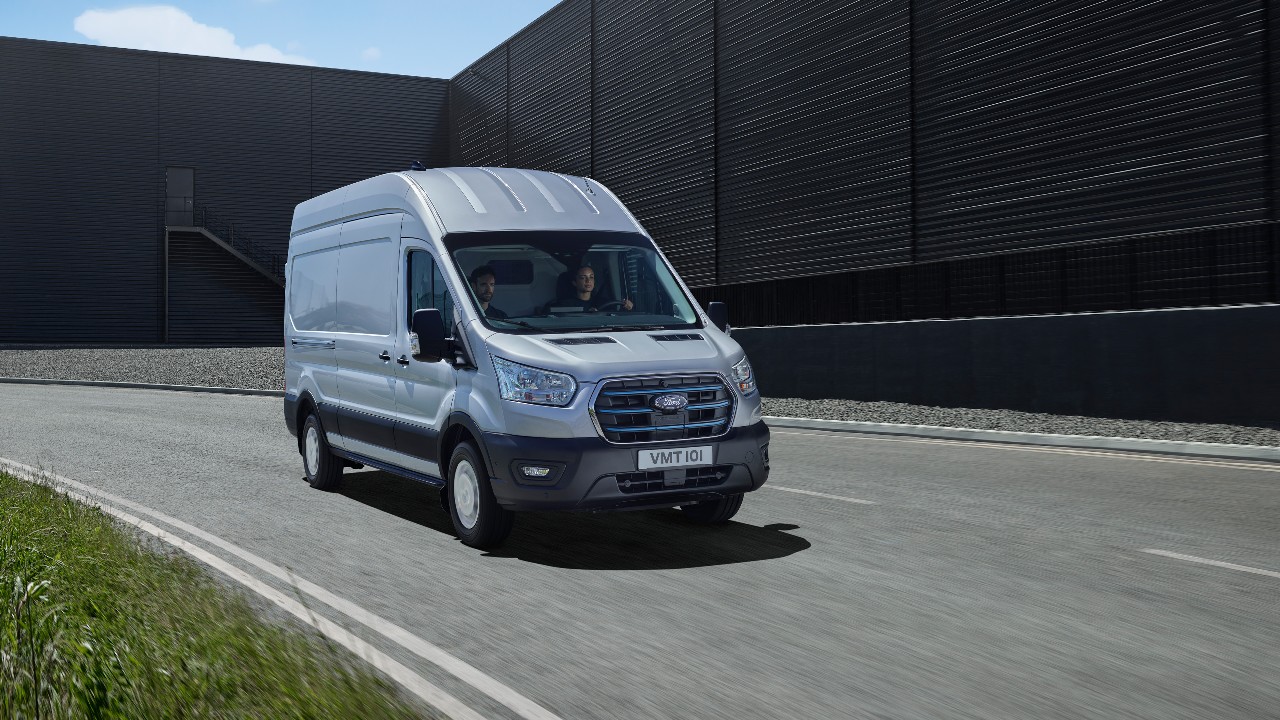
Citroen e-Dispatch
The new Citroen e-Dispatch comes in two sizes and as a panel van or crew van. The battery offers an official range of 217 miles from its largest 75kWh battery option and fast-charging capability, which means drivers can replenish the battery at a 100kW public charger from empty to 80% in 45 minutes.
The Citroen shares its underpinnings with other brands in the Stellantis family, namely the Fiat E-Scudo, Peugeot e-Expert and Vauxhall Vivaro Electric, in addition to the Toyota Proace, although they each bring their own unique approach to pricing, specification and performance.
A clever feature is a function that shows the power consumption of key electrical equipment including the heating and air conditioning, which can have a significant impact on a vehicle’s range.
The electric Citroen can tow up to a recommended 1,000kg with a braked trailer.
A smaller Citroen e-Berlingo, also a shared platform, offers 171 miles of range and up to 800kg of payload.
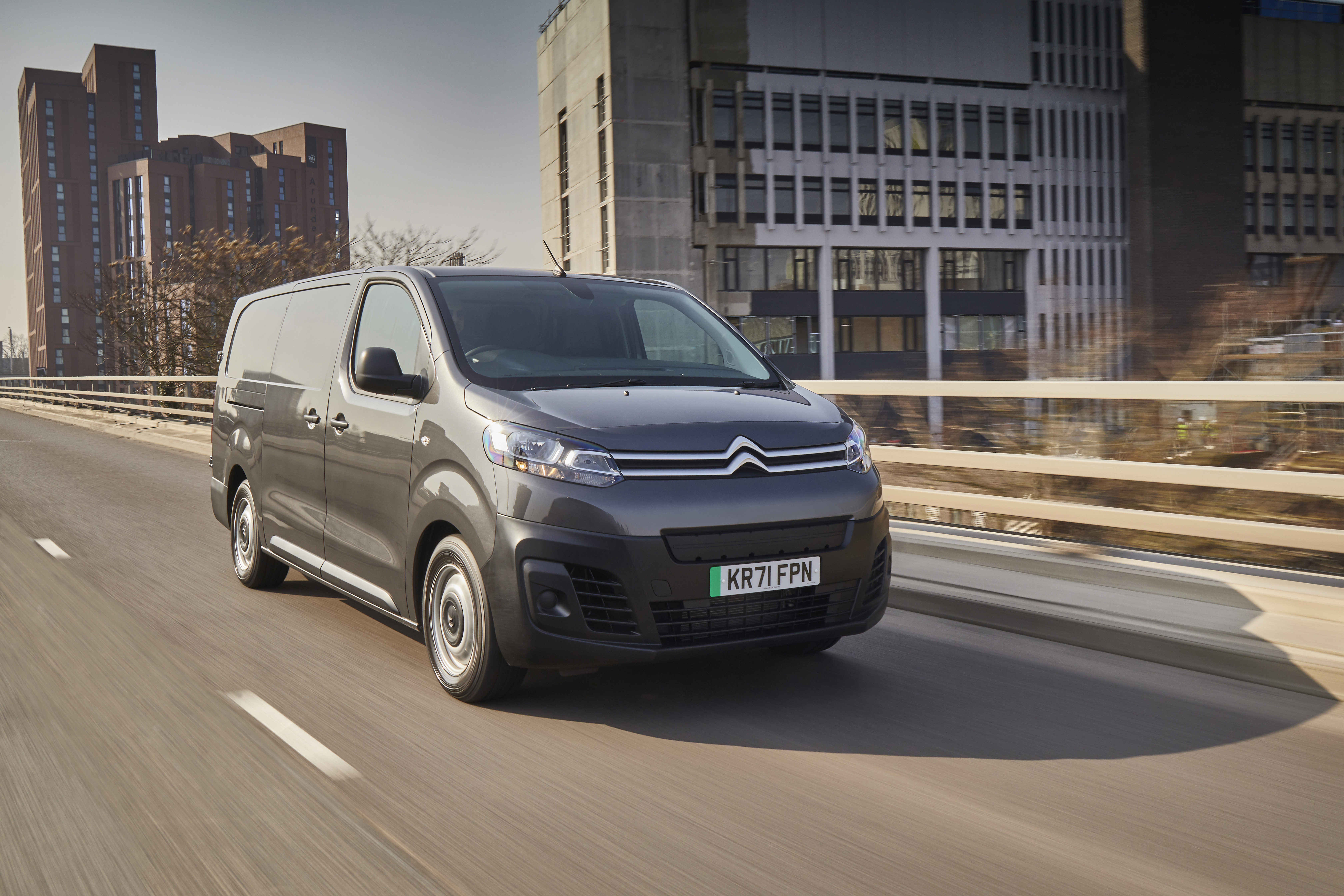
Peugeot e-Expert
Peugeot is focused on in-cab features to enable drivers to work on the move. This includes its Moduwork option, a shelf that folds out of the centre armrest to turn the driving space into a workspace, where you can rest pens, notepads or a laptop when parked.
The e-Expert offers an official range of up to 211 miles with a full 75kWh battery and a payload of up to 1,275kg and the 1,000kg towing capacity of its Stellantis siblings.
A smaller Peugeot e-Partner has a claimed 205 miles range, an eye-catching front end and the unique design of the brand’s i-cockpit.
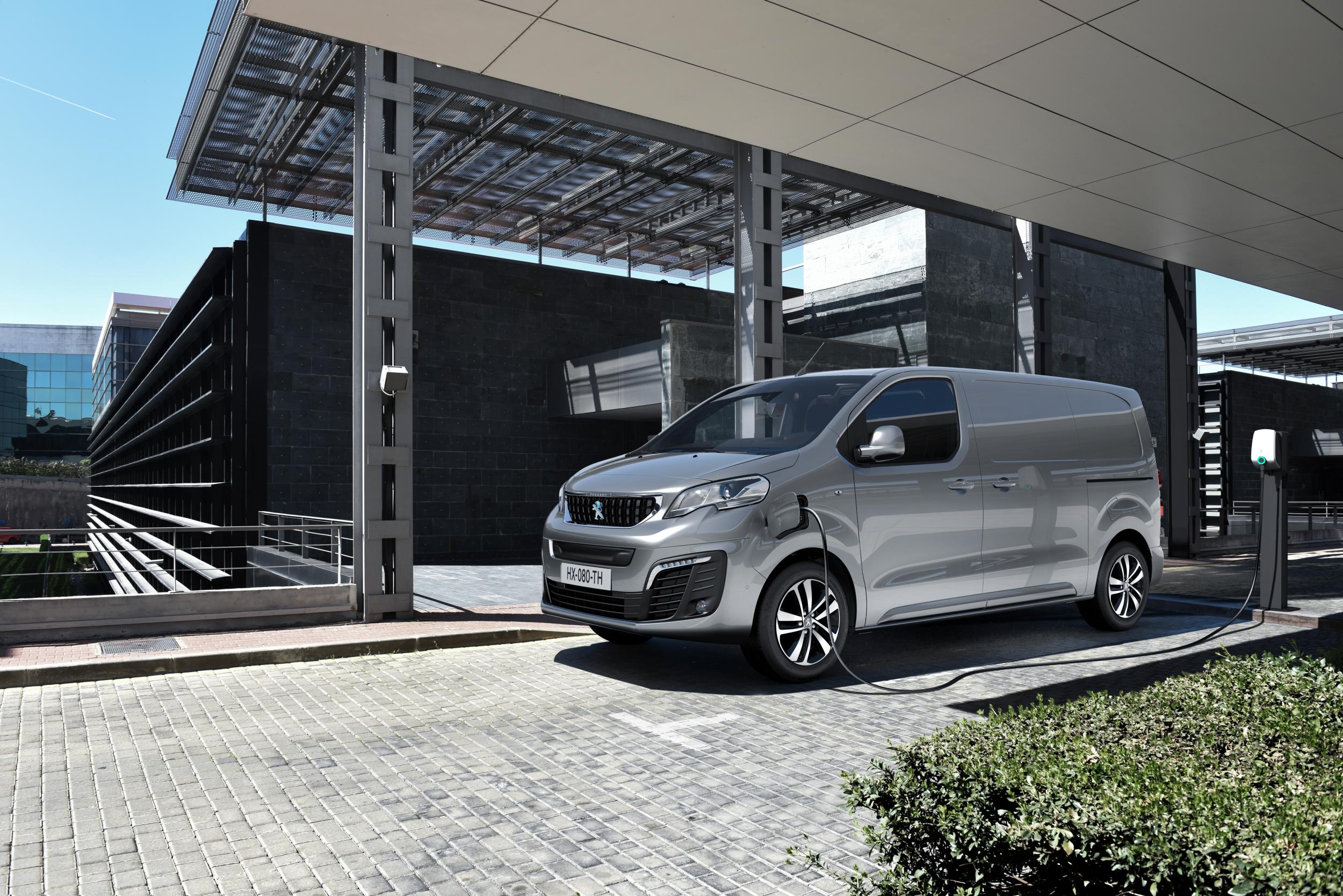
Vauxhall Vivaro Electric
Like its Stellantis siblings, the Vauxhall offers two battery packs, with 50kWh or 75kWh, which in the Vauxhall delivers 143 miles or 205 miles of range respectively.
There is a payload of 1,226kg for the smaller battery and 1,002kg for the larger option.
A driving mode selector replaces the gear lever, so drivers can choose different levels of power delivery as well as forward or reverse gears.
The electric Vauxhall can tow up to a recommended 1,000kg with a braked trailer.
You can downsize to the Vauxhall Combo Electric, which can carry a payload of up to 1,000kg and has an official range of 205 miles.
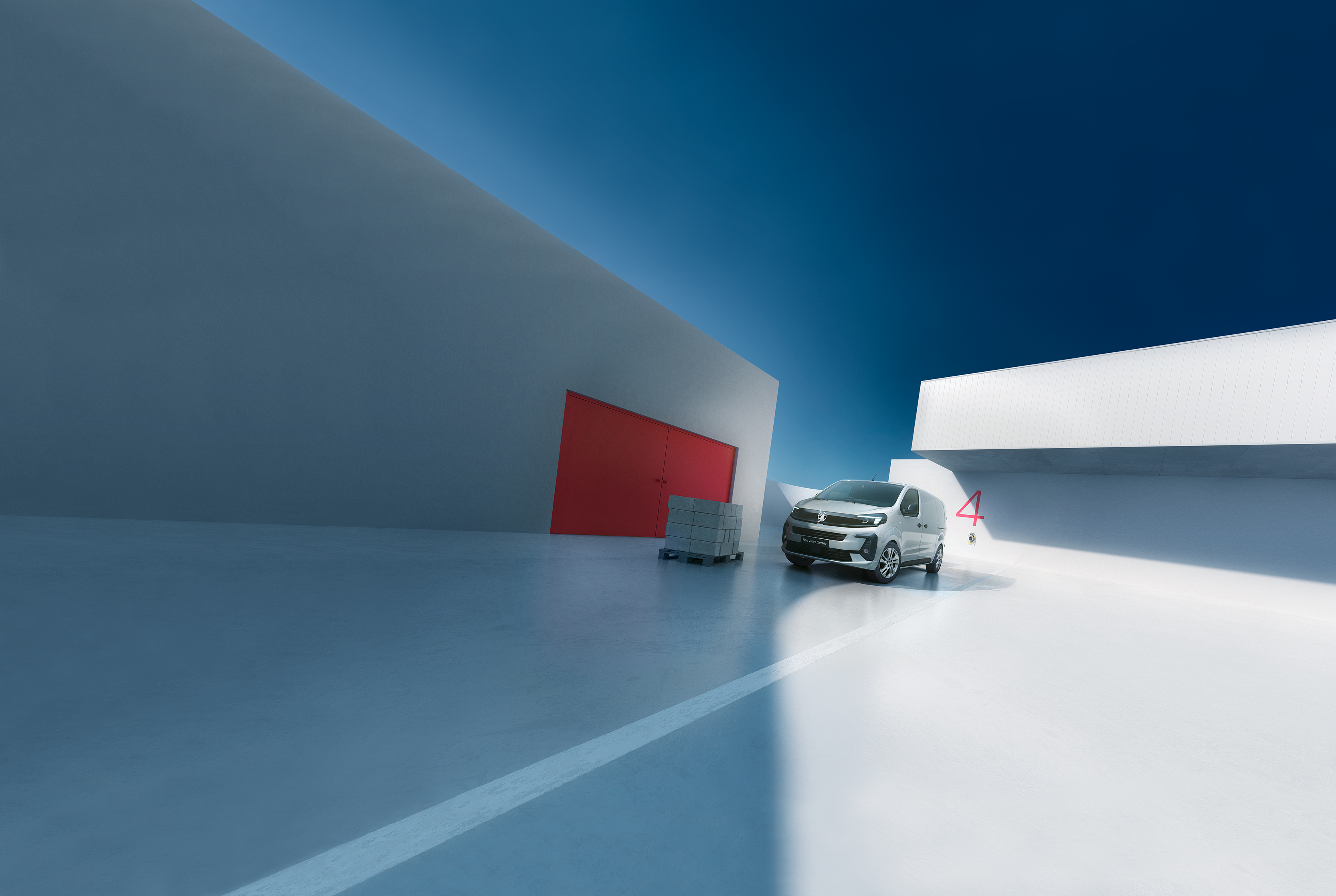
Fiat E-Scudo
In the Fiat E-Scudo, fleets are offered up to 217 miles of official range from the 75kWh battery option and a 1-ton payload. The 50kWh option can achieve 139 miles on a single charge.
Fiat offers a panel van or a crew cab option and features such as a load-through bulkhead and heated seats.
Fiat also has a partnership with Mopar for accessories, including dedicated seat covers, smartphone and tablet supports, and even a fragrance diffuser.
The electric Fiat can tow up to a recommended 1,000kg with a braked trailer.
The smaller Fiat E-Doblo, like many of its other Stellantis-owned siblings, offers 205 miles range from its 50kWh battery, while a larger E-Ducato is capable of carrying up to two tonnes. It has a range of more than 260 miles from its 110kWh battery.
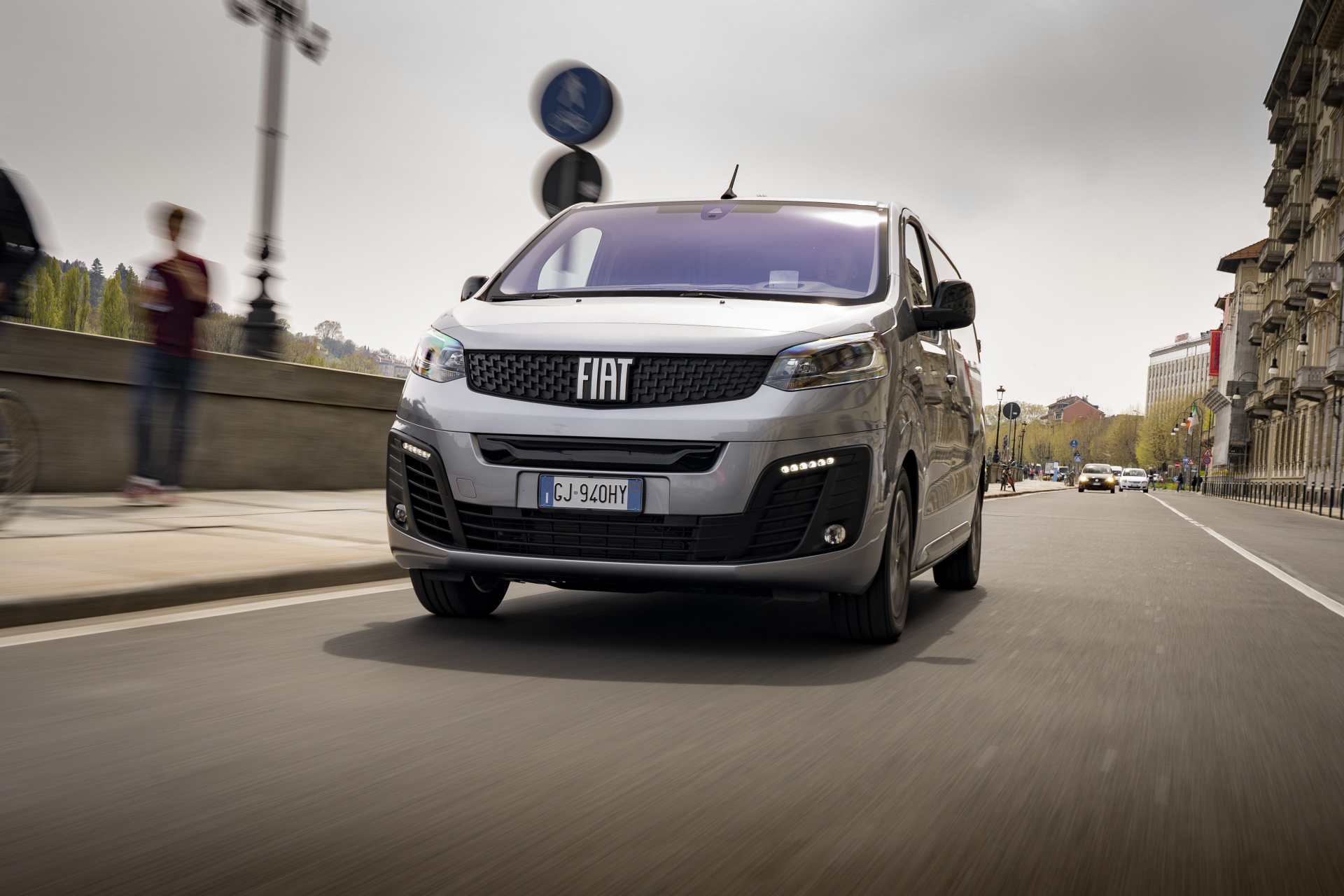
Toyota Proace Electric
The Toyota Proace is built on the same platform as the Stellantis family of medium-sized electric vans, but with the added benefit of a 10-year warranty if you follow the Toyota service schedule.
The 50kWh and 75kWh battery options offer 142-205 miles of range respectively, while Toyota provides helpful guidance on how to choose the right battery for your business needs.
It provides useful case studies of electric van owners using the Toyota Proace Electric for their businesses to show how they perform under real-world conditions.
The electric Toyota can tow up to a recommended 1,000kg with a braked trailer.
Toyota also offers a smaller version called the Proace City Electric, which has a 50kWh battery that offers 171 miles range.
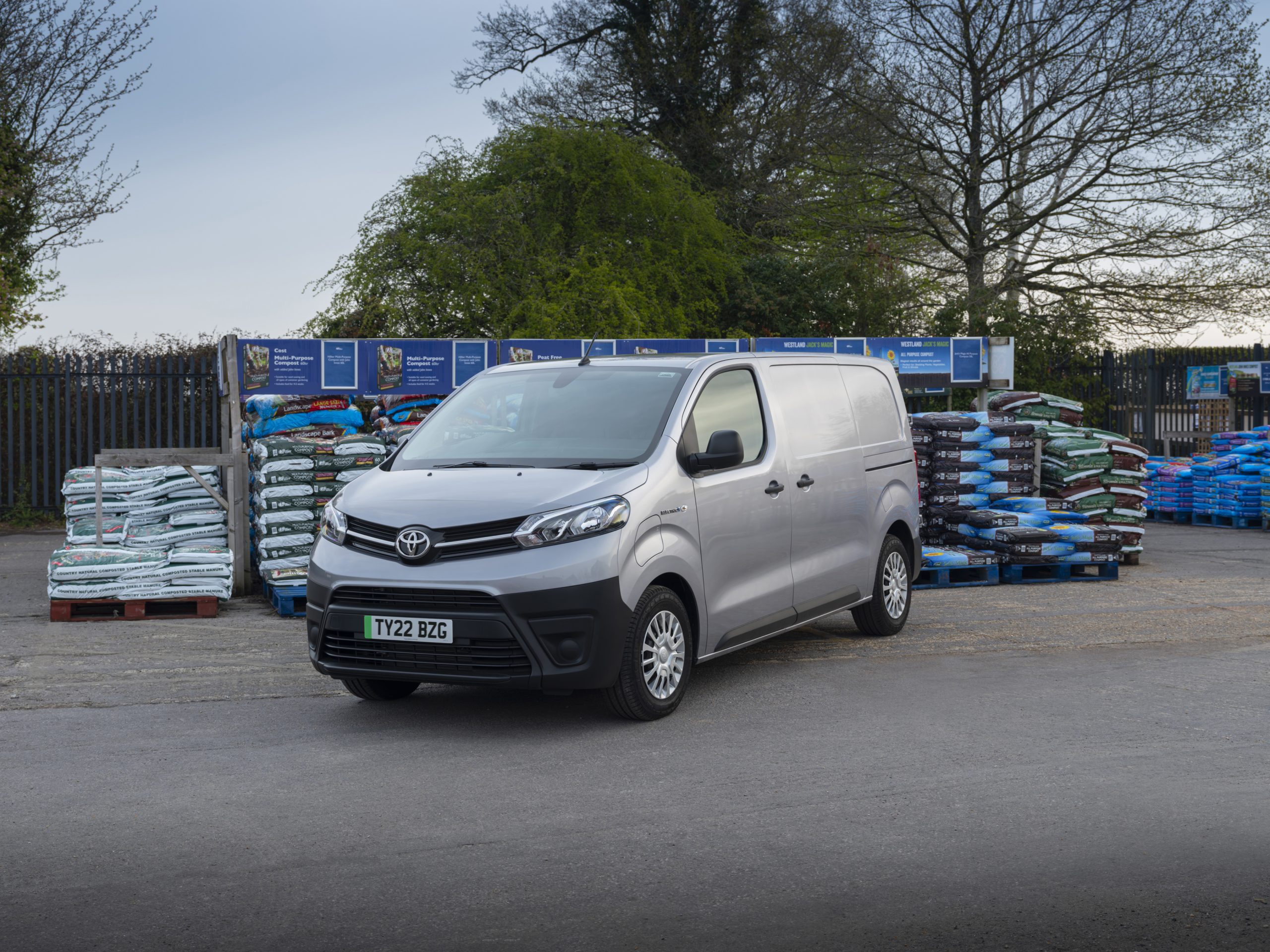
Mercedes-Benz eVito
The Mercedes-Benz eVito got off to a shaky start in its first test with fleets amid concerns about its short range (eVito Reflex Road Test)
The latest model responds to the challenge with a 50% boost in range to 160 miles and a payload of up to 807kg.
Build quality meets the high standards set by Mercedes-Benz and there is useful technology, such as a touchscreen and driver smartphone app.
The Mercedes-Benz eVito does not provide a figure for towing.
Mercedes also offers the smaller Citan as an electric option. The eCitan has a range of up to 176 miles from its 90kWh battery pack.
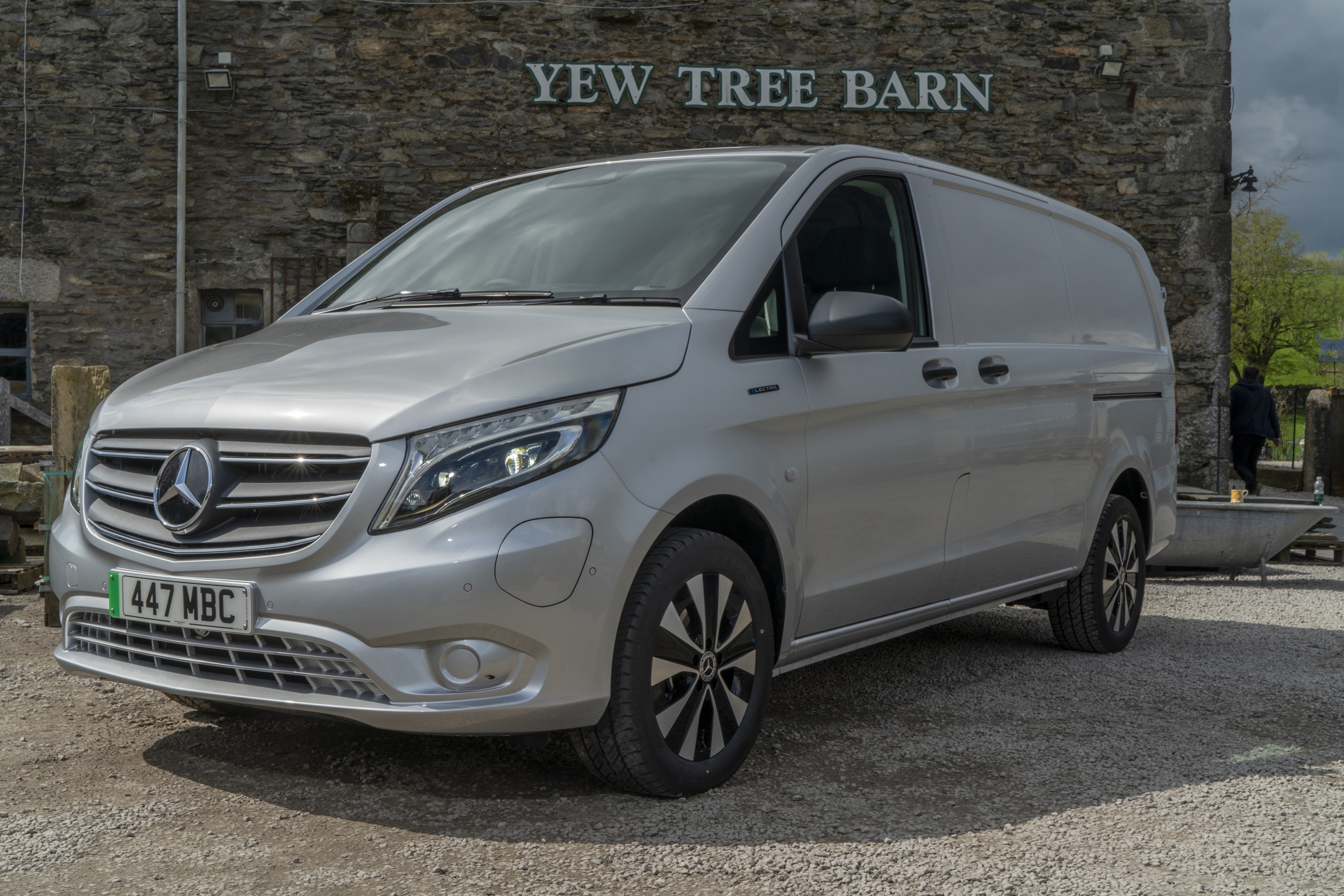
Renault Kangoo E-Tech
The Renault Kangoo E-Tech electric van recently secured the accolade of Best Small Electric Van at the What Car? Awards 2024.
Its 44kWh battery offers a driving range of 186 miles and it can add around 100 miles of range in half an hour when fast charging.
Renault also offers a useful online calculator where fleets can input factors such as payload, average speeds, and weather conditions to see the impact on real-world range, in addition to elements such as whether air conditioning, heating or Eco mode are used.
The Kangoo E-Tech comes in five versions, including several wheelbases and a crew van, with braked trailer towing capacity of 1,500kg.
An electric version of the larger Trafic E-Tech launched in Europe last year and is expected in the UK this year, offering 149 miles of range.
Renault has also unveiled an electric version of its largest van. The Master E-Tech has two battery options, 40kWh and 87kWh, offering up to 285 miles of range, along with 1.6 tonnes payload and 2.5 tonnes towing capacity. It will be available to order later this year.
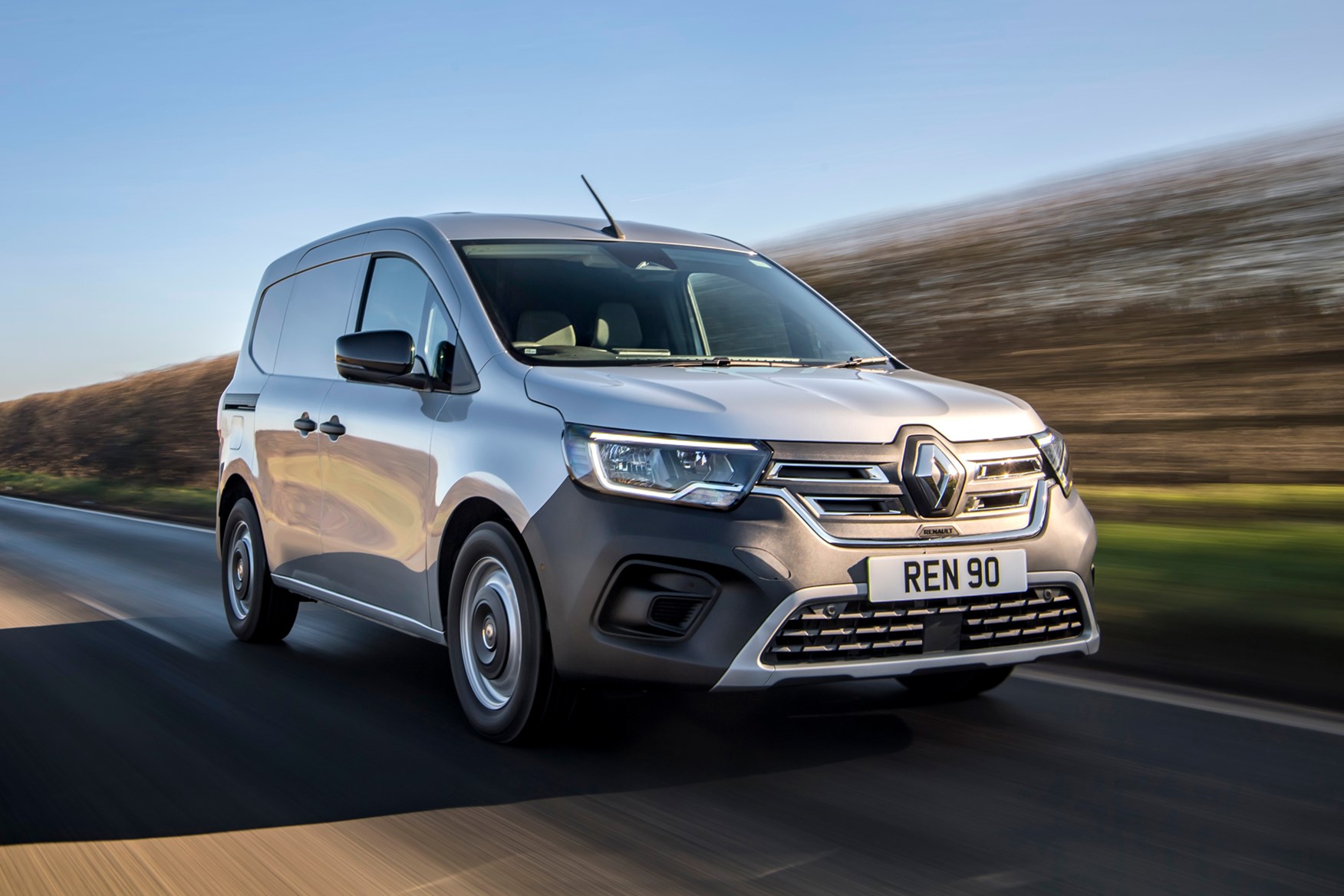
Iveco eDaily
The eDaily is designed to offer the same robust and flexible Iveco product buyers have come to expect, but with zero emissions. As a result, there are unique innovations, such as modular battery options which can be upgraded during the life of the vehicle. Buyers can opt for one, two or three batteries in their eDaily, offering 37, 74 or 111kWh and up to 250 miles of range.
Iveco’s dedicated commercial vehicle focus also means a vast range including van, chassis cab and minibus, weights from 3.5-7.5 tonnes, and single or twin-wheel options.
The Iveco also boasts up to 3.5 tonnes towing capacity, depending on the variant chosen, making the eDaily the only electric LCV with the same towing capacity as the diesel alternative.
There is also a wealth of Iveco support services that are focused on commercial vehicle fleet and driver needs.
Maxus eDeliver
Fleet operators considering what their choice lists will look like in an electrified future have a new name to consider, as Maxus rolls out its new range of zero-emission commercial vehicles.
The Maxus electric van range comes in a growing number of variants, from vans and chassis cabs to a new pick-up, and its zero-emission clients include delivery giant DPD.
The eDeliver van range covers the small 3, mid-size 7 and the larger 9 version.
The eDeliver 9 is an alternative to a full-sized Ford Transit, while the eDeliver 3 is a compact van providing maximum space in a smaller footprint; the mid-size 7 falls in between the two.
Reflex Vehicle Hire has carried out a road test of the eDeliver 3 and it gave a strong performance - Maxus eDeliver 3 Reflex Road Test
In terms of range and payload, the eDeliver 3 has an official range of 213 miles on a single charge of its 50kWh battery, or 99 miles for the 35kWh version, with a 945kg payload.
The eDeliver 7 can officially travel 230 miles and carry a payload of up to 1,135kg, while the eDeliver 9 has three battery options, from 50-89kWh, with maximum range of 219 miles and payload of 1,290kg.
Braked trailer towing capacity varies by model and battery chosen, with the eDeliver 3 and eDeliver 9 offering 1,090-1,200kg, while the eDeliver 7 can tow 1,500kgs.
eDeliver 7
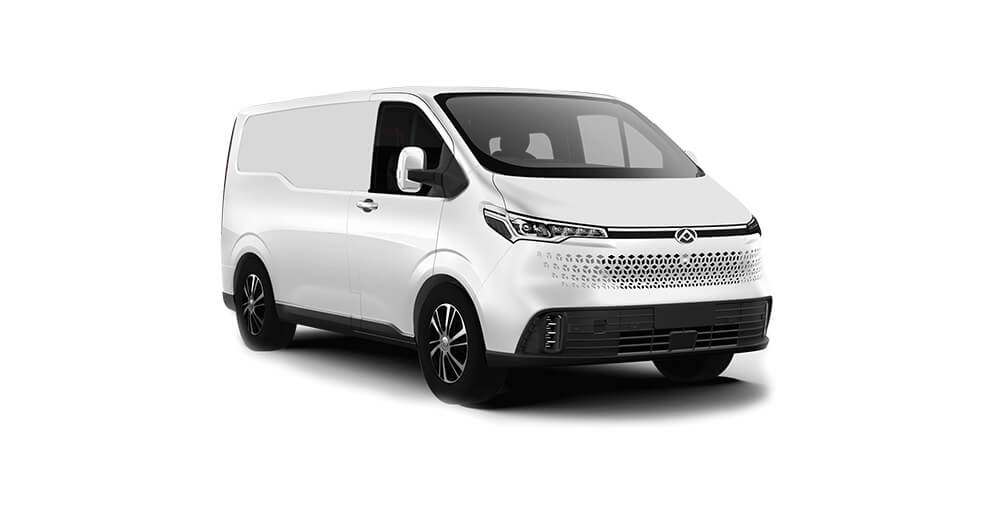
eDeliver 9
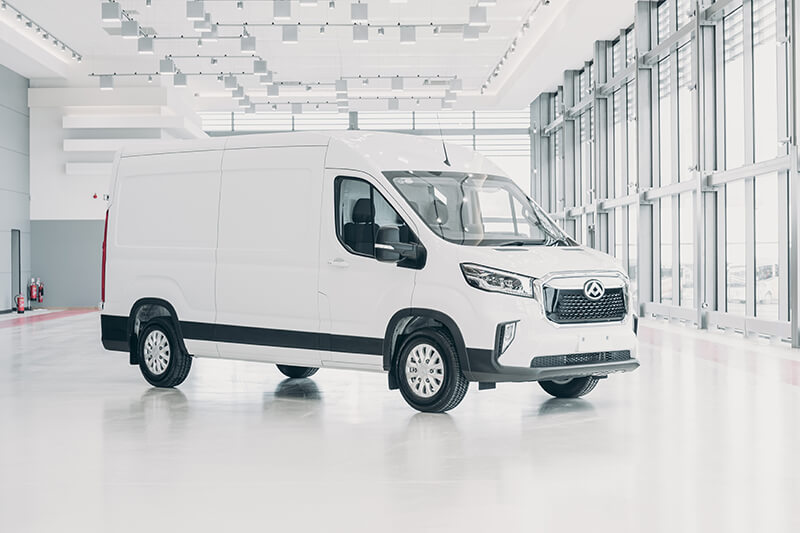
Volkswagen ID. Buzz Cargo
The iconic Volkswagen Transporter was available as an electric-only model with the ABT e-Transporter 6.1 conversion, but attention has now turned to the eye-catching ID. Buzz Cargo as the future zero-emission load carrier.
In addition to its stand-out looks, the ID. Buzz Cargo counts as the first all-electric van from Volkswagen, with a range of up to 254 miles, 3.9 cubic meters of load space and a 77kWh battery.
Towing capacity is 1,000kg with a braked trailer.
The ID. Buzz Cargo also comes in some unique colours, including Lime Yellow and Metallic Green.
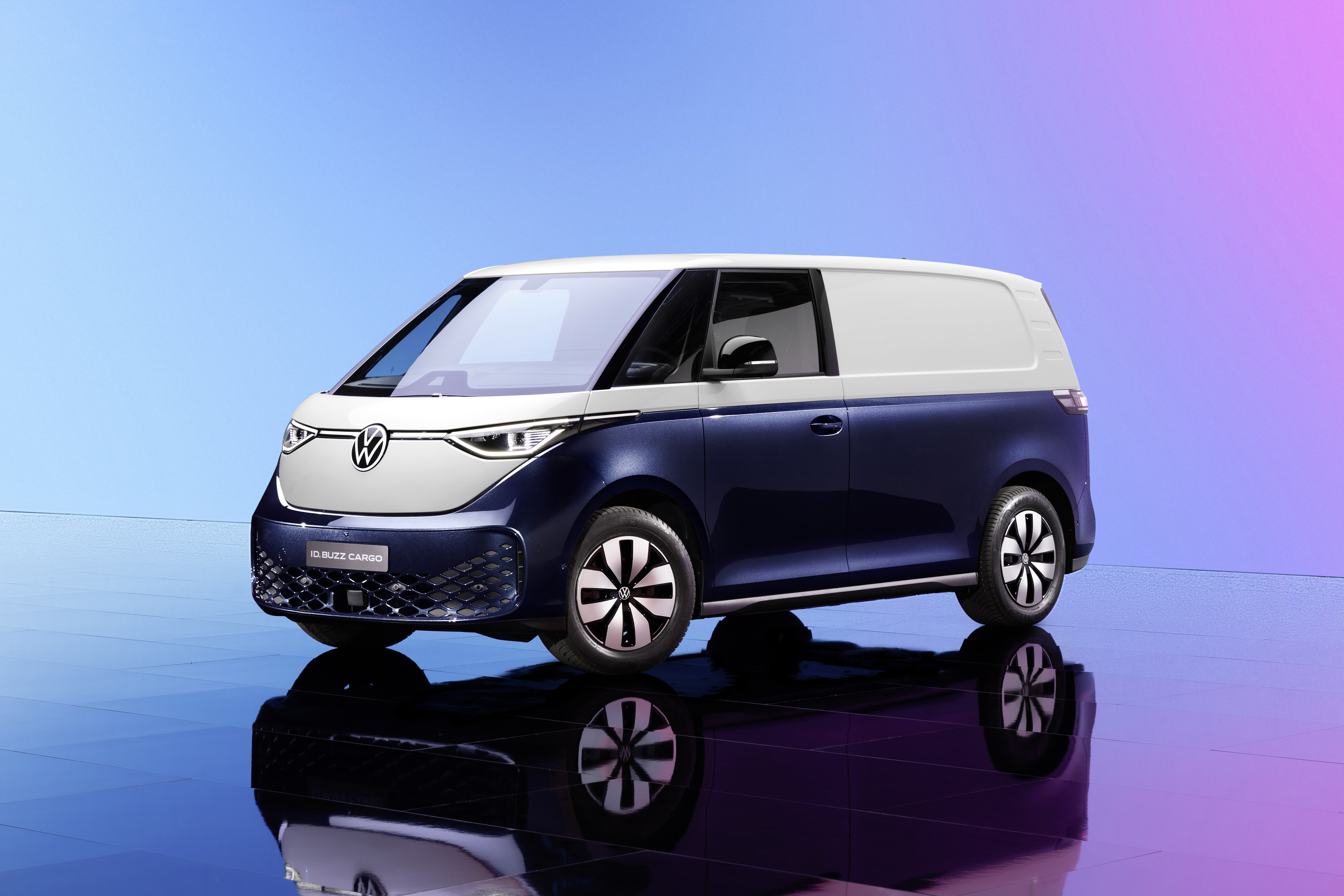
Whether you need diesel, petrol or electric power, Reflex Vehicle Hire is here to help with a wide range of vehicles and expert guidance.
Ask about our award-winning EV:IE (Electric Vehicle Information Exchange) service, which provides detailed support and guidance so you can make the best choices when introducing electric alternatives
Share to:.
Find out more
Find out how Reflex Vehicle Hire can help your company.
Call 0330 460 9913 or visit our contact us page.








@2x.png)

